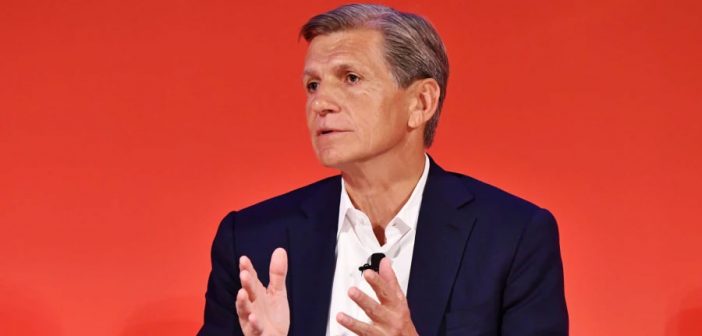P&G’s Gillette will not be the last brand to promote its values, as a new survey of marketing and communications execs reports
At Davos last week, P&G chief marketing officer Marc Pritchard talked about the swift and loud reaction to Gillette’s latest ad “The Best Men Can Be,” saying that consumers now expect brands to take stands and have points of view. “Take the Edelman Trust Barometer; eight out of 10 consumers say they prefer brands that take a stand . . . . We expected not everyone to respond positively, but that’s what being a leader is all about. It was time.”
A new survey from Weber Shandwick suggests that Pritchard isn’t alone. The company’s newest CEO Activism study focuses on marketing and communications executives in the U.S., UK, and China. Among its results are that 53% of communications and marketing executives are spending more time discussing and planning for executive and brand activism; 62% say they’d have a more favorable opinion of their CEO if he or she spoke out on a hotly debated current issue; and of those whose CEO has spoken out, 67% say it had a positive impact on their company reputation.
We were honored to see our friend @StephenAtHome joined by @AOC toasting to better days with Americone Dream on @colbertlateshow! Watch here >> https://t.co/5yiCjLk7qk https://t.co/ganCTcquEv
— Ben & Jerry's (@benandjerrys) January 23, 2019
Weber Shandwick’s chief reputation strategist Leslie Gaines-Ross says that the new report’s findings reflect the new reality that everything a company does–from its formal advertising to its CEO statements–are now brand communications and tie back into brand image. “It’s been a game-changer for companies in terms of realizing that employees, customers, and communities are expecting CEOs to speak up for their company values,” says Gaines-Ross. “And this is where communications and marketing people get pulled in to the discussion.”
Our new mission statement is direct, urgent, and crystal clear.
"We're in business to save our home planet."https://t.co/oW5ydlRm6I— Patagonia (@patagonia) December 14, 2018
This is an important point, and a spot where companies can run into trouble if advertising or a CEO makes a statement around an issue, only to have the public find out the company’s practices don’t follow those same principles. Once again, let’s take Gillette. The brand makes a bold statement denouncing toxic masculinity, and yet remained one of the last major advertisers on Tucker Carlson. Gaines-Ross says her the survey results illustrate that more companies are planning ahead to avoid any conflicting signals that could undermine any given statement.
–
This article first appeared in www.fastcompany.com
Seeking to build and grow your brand using the force of consumer insight, strategic foresight, creative disruption and technology prowess? Talk to us at +9714 3867728 or mail: info@groupisd.com or visit www.groupisd.com


